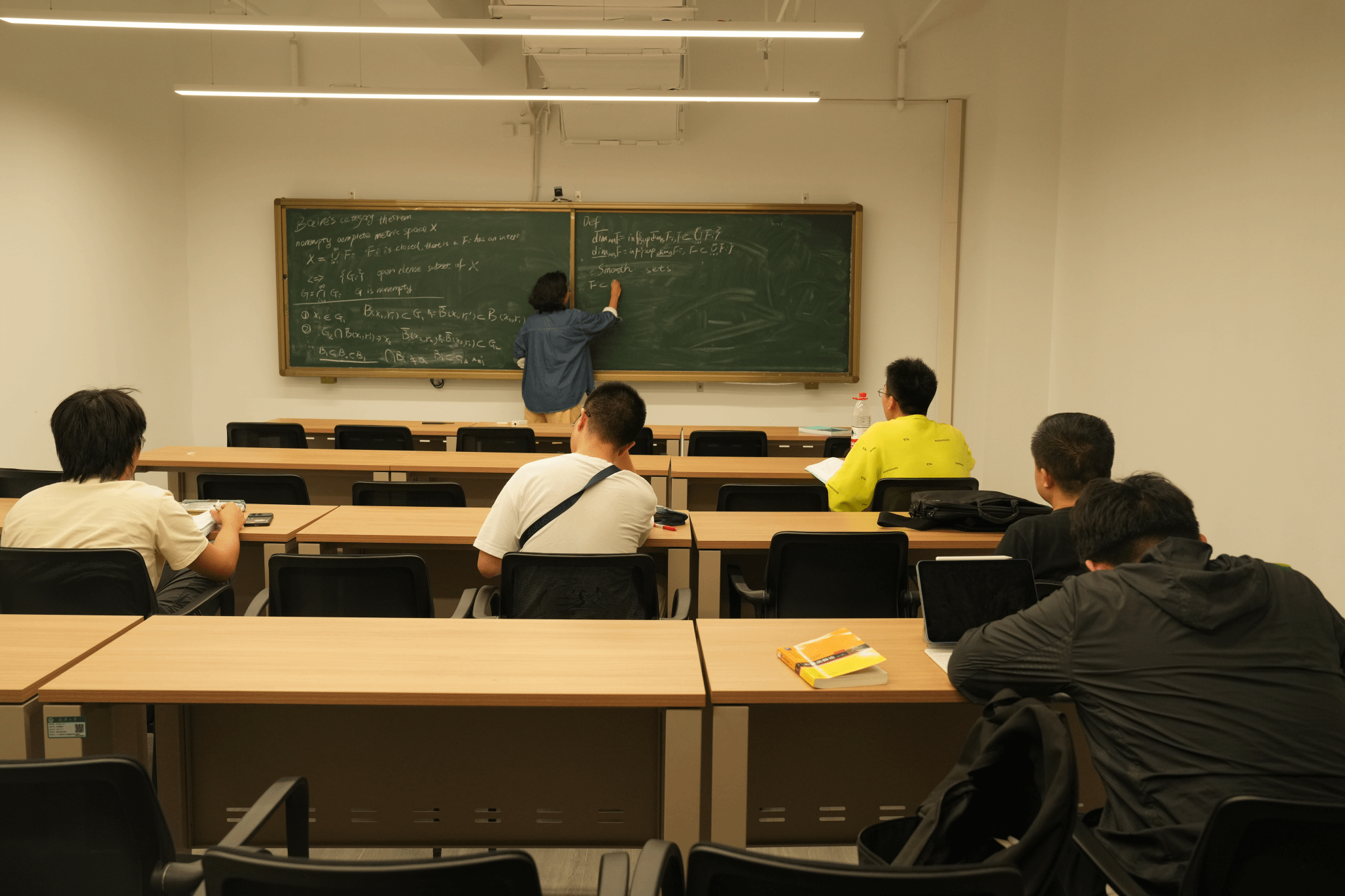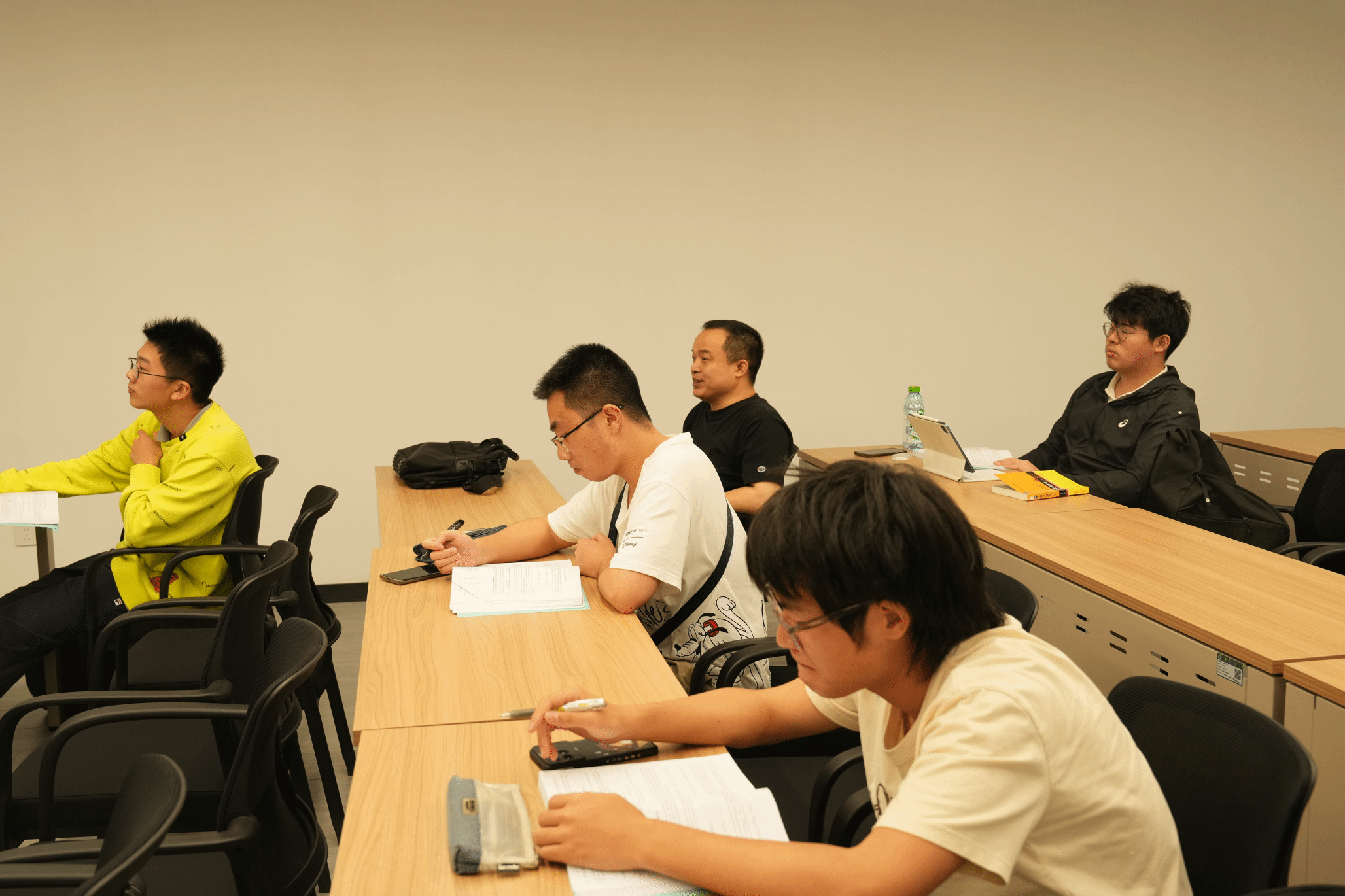Fractal geometry is a branch of mathematics that studies irregular, complex, and self-similar structures. In recent years, it has become a prominent frontier of research in both mathematics and physics. Owing to its remarkable adaptability in modeling complex systems, image compression, materials science, and financial market analysis, fractal geometry demonstrates tremendous application potential. At present, academic research mainly focuses on the precise computation of fractal dimensions and on interdisciplinary studies integrating fractal geometry with other fields.
In response to our college’s initiative to cultivate undergraduate research capabilities, Professors Liao Lingmin, Ma Jihua, Tong Xin, and Yu Yueli offered a seminar on fractal geometry this semester, which I had the privilege to attend. This discussion-based class not only emphasizes a meticulous analysis of fundamental concepts in fractal geometry but also focuses on rigorous proofs of its core theorems. Through the integration of theoretical learning and practical exploration, it aims to effectively enhance students’ academic literacy. With their profound scholarship and outstanding teaching skills, Professors Liao and colleagues have created an intellectually free yet rigorous academic atmosphere, encouraging students to seek truth through reflection and to innovate through practice.
 In the first session, Professor Liao Lingmin introduced students to the world of fractal geometry through a series of insightful examples. From an in-depth interpretation of the famous “British coastline paradox” to the forward-looking application of multifractal analysis in art authentication, these vivid and relevant cases quickly stimulated students’ strong interest and curiosity about fractal geometry. Through careful case studies, we gained an initial sense of the great potential of fractal geometry in solving real-world problems and developed a clear understanding and enthusiastic anticipation for future studies.
In the first session, Professor Liao Lingmin introduced students to the world of fractal geometry through a series of insightful examples. From an in-depth interpretation of the famous “British coastline paradox” to the forward-looking application of multifractal analysis in art authentication, these vivid and relevant cases quickly stimulated students’ strong interest and curiosity about fractal geometry. Through careful case studies, we gained an initial sense of the great potential of fractal geometry in solving real-world problems and developed a clear understanding and enthusiastic anticipation for future studies.
In the second session, Lin Zhiyu from the Class of 2024 in Information and Computational Science (Self-Strengthening Class) served as the main presenter. He systematically explained the definition of the box-counting dimension and its various equivalent formulations. Under the patient guidance of Professors Liao and others, Lin rigorously proved key propositions from the textbook and supplemented his presentation with classic examples such as the Middle Third Cantor Set and the Sierpinski Triangle. This segment not only strengthened our theoretical foundation but also greatly improved our precision in mathematical expression, cultivated our ability for logical reasoning, and laid a solid groundwork for deeper future research.
In the third session, Zhou Houjue from the 2024 Mathematics Hongyi Class was the main speaker. He focused on the concept of Lipschitz transformation and extended relevant propositions based on this framework. He carefully proved properties related to Hölder transformations. Inspired by the idea of a bi-Lipschitz transformation, students actively explored and boldly proposed the novel concept of a bi-Hölder transformation. They successfully proved that this concept holds true in discrete cases but fails when continuous intervals are included. This important finding vividly demonstrates students’ enthusiasm for academic exploration and their spirit of innovation, while also reflecting the seminar’s notable success in fostering scholarly passion and encouraging original thinking.

The successful organization of the Fractal Geometry Seminar allowed us to deeply appreciate our college’s strong commitment and solid efforts in cultivating undergraduate research abilities. Professors Liao Lingmin, Ma Jihua, Tong Xin, and Yu Yueli, with their broad expertise and superb teaching, have carefully built an academic platform that promotes free inquiry and active thinking, encouraging students to boldly tackle academic challenges and continuously expand the boundaries of their knowledge.